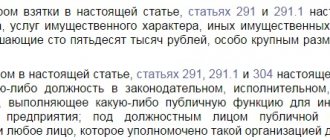ST 40 of the Criminal Code of the Russian Federation.
1. It is not a crime to cause harm to interests protected by criminal law as a result of physical coercion, if as a result of such coercion the person could not control his actions (inaction).
2. The issue of criminal liability for causing harm to interests protected by criminal law as a result of mental coercion, as well as as a result of physical coercion, as a result of which the person retained the ability to control his actions, is resolved taking into account the provisions of Article 39 of this Code.
Commentary on Article 40 of the Criminal Code of the Russian Federation
Physical or mental coercion is identified by the legislator as an independent circumstance that excludes the criminality of the act.
Physical coercion is the influence of external forces on a person’s will in order to force him to commit a socially dangerous act. Such influence can be carried out through beatings, torture, causing bodily harm and other methods that cause physical pain and (or) harm to the human body.
In accordance with Part 1 of Art. 40 of the Criminal Code of the Russian Federation, it is not a crime to cause harm to interests protected by criminal law as a result of physical coercion, if, as a result of such coercion, the person could not control his actions (inaction).
The inability to control one's actions can arise in situations where the force of influence on a person is irresistible.
According to the provisions of the law, an act is recognized as a crime if it occurs under the control of the will. The absence of a volitional nature of the acts performed by a person excludes his criminal liability. Causing harm to legally protected interests under duress means committing a socially dangerous act against the will of a person under the influence of external factors that threaten the benefits that are significant to him (life and health). If a person cannot control his actions, he is not responsible for the damage caused in the criminal law aspect.
It seems that in this kind of cases we should talk about the absence of the subjective side of the crime, since the will of the person to cause harm is absent, his behavior is not volitional and, therefore, cannot be regarded as criminal due to the absence of corpus delicti, and not by virtue of Art. 40 of the Criminal Code of the Russian Federation, although in such cases there is both the absence of a crime and the presence of physical coercion. It should be noted that in practice the prevailing tendency is to dismiss criminal cases involving physical coercion due to the absence of corpus delicti.
If physical coercion does not lead to a state in which a person cannot control his actions, then criminal liability is excluded only in the presence of a state of extreme necessity and subject to the conditions of its legality. In all other cases, a person is subject to criminal liability due to the presence of volitional behavior and the absence of circumstances excluding the criminality of the act.
The issue of responsibility is resolved in a similar way in the presence of mental coercion, which is an influence on the human psyche with the aim of suppressing his will. Mental coercion is realized in various kinds of threats of harm both to the person to whom it is applied and to other persons, as well as to society or the state. Deception, bribery, persuasion and other similar means of influence are not recognized as mental coercion. It is possible to directly influence the psyche of a person using psychotropic substances, hypnosis and other methods. With mental coercion, the will of a person is not suppressed to such an extent that he is deprived of the opportunity to realize his actions and direct them. This means that acts committed under the influence of such coercion are criminally punishable (Part 2 of Article 40 of the Criminal Code of the Russian Federation). Otherwise, there is no corpus delicti for the reasons stated above.
The issue of criminal liability for causing harm to interests protected by criminal law as a result of mental coercion, as well as as a result of physical coercion, as a result of which the person retained the ability to direct his actions, is resolved taking into account the provisions of Art. 39 of the Criminal Code of the Russian Federation - an extreme necessity.
Both physical and mental coercion are considered as circumstances mitigating punishment (clause “e” of Part 1 of Article 61 of the Criminal Code of the Russian Federation), unless they are recognized as circumstances that exclude the criminality of the act or do not create a state of extreme necessity.
Commentary to Art. 40 Criminal Code
1. The criminal law distinguishes, firstly, irresistible physical coercion (Part 1) and, secondly, surmountable physical coercion and mental coercion (Part 2).
2. Irresistible physical coercion, i.e. the present and real inability of a person to direct his actions due to the complete suppression of his will excludes the criminal liability of such a person due to the fact that the act committed by him does not correspond to his will. In this case, the person is not able to resist coercion (he is tied up, locked up, tortured, etc.).
The coercer as a mediocre performer is subject to criminal liability for the crime committed (Part 2 of Article 33 of the Criminal Code).
3. Overcome physical coercion and mental coercion exclude the criminal liability of a person if, firstly, the coercion was present and real and, secondly, actions under duress comply with the conditions of legality of extreme necessity (Article 39 of the Criminal Code), in particular the condition of proportionality of actions in a state of emergency.
Subjective signs
The second group of elements is considered to be a set of characteristics: the personality characteristics of the criminal, his goals, motives, the nature of the guilt - all this will determine whether it is permissible to bring a particular person to justice or not.
The subject of the act in question is only a citizen, not an organization, who has reached the age of sixteen and is recognized as fully sane.
Regarding the subjective side, the procedure for establishing it is much more complicated.
This element reflects a person’s mental and psychological attitude to what he does, the danger his actions pose, and the final negative result. This perception of the situation is called guilt.
This attribute has two forms of existence, which also affects qualifications and measures of responsibility:
- Intent. It presupposes a person’s full awareness of his actions, an assessment of the negative consequences and the desire for their occurrence. That is, a person strives for a criminal result and does everything to achieve it. Intention can be direct or indirect, the difference is only in relation to the outcome of the offense, which may have a slight impact on the punishment.
- Carelessness. It also presupposes that the guilty person is fully aware of his actions. However, attitudes towards the consequences are changing. If the act of negligence occurs in the form of negligence, then the person did not foresee the negative result, but should have done so due to the circumstances. If in the form of frivolity, then the criminal knows what will happen after he commits the act, but without sufficient grounds for this he believes that the consequences will not occur.
Speaking about the crime associated with coercion to give false testimony and refusal of it, only direct intent is at work here.
Also, judicial practice in the Resolutions of the Plenum reflects the need to determine the goals of the criminal
It is important to establish the fact that the guilty person sought to obtain false testimony relating to a specific case. Threats, blackmail, violence without such a purpose will have a different qualification with the application of sanctions of another article of the law, for example, extortion
How to prove the fact of psychological bullying
However, there are still several options that will help substantiate the complaint. Here are some of them:
- Doctor's report. A psychologist can determine that family members have developed certain psychological problems - fears, resentments, low self-esteem, and so on - and all this is a consequence of mistreatment by a relative. This method is especially relevant for children. This way, a school psychologist can immediately determine whether there is psychological violence among children in the family or whether everything is fine.
- Recorded moment of violence. You can audiotape your spouse/parent's systematic aggressive attacks. The best option is if there is evidence in video format - it will be more specific.
- Witnesses. If your neighbors, friends, acquaintances have repeatedly witnessed scenes of psychological violence, they will be able to help you bring the offender to justice.
- Sometimes aggressors themselves admit that they emotionally oppress their loved ones. This usually happens when a person is sick, realizes his guilt and tries to improve.
So, if you have collected at least a little evidence, it’s time to contact the police to get protection from psychological violence. To do this, you need to fill out an application in which you should indicate information about yourself and the aggressor, describe the situation and attach evidence. After registering a statement, your case will be reviewed and the offender will be brought to justice.
Victims of psychological violence also have the right to file a lawsuit for compensation for moral damage. You can file a claim yourself, or you can seek help from a lawyer.
However, it is important to know that such cases rarely reach court, so there has not been much judicial practice in this area.
Another comment on Article 179 of the Criminal Code of the Russian Federation
1. The following are recognized as criminally punishable methods of forcing someone to complete a transaction or refuse to complete it:
1) threat of violence;
2) threat of destruction or damage to property;
3) threat of dissemination of information that could cause significant harm to the rights and legitimate interests of the victim or his relatives.
The threat must be real, i.e. the victim must have reason to fear its implementation.
Coercion may be accompanied by the actual use of physical violence. If this violence consists of beatings, torture, infliction of minor, moderate and serious bodily harm, with the exception of qualified grievous bodily harm (parts 2, 3 and 4 of Article 111 of the Criminal Code), then the act is qualified under paragraph “b” Part 2 of the commented article. In this case, the criminal can threaten and use such violence both in relation to the person from whom he seeks consent to the transaction or to refuse it, and in relation to his relatives.
2. The actual destruction or damage of someone else’s property when forced to complete a transaction or refuse to complete it is qualified under the totality of Art. Art. 179 and 167 of the Criminal Code.
3. Information, under the threat of dissemination of which the perpetrator seeks to force the victim to make a transaction or refuse it, can be very diverse, true or false. Making them public can cause significant harm to the rights and legitimate interests of the victim or his relatives. The threat of disclosing information about an actually committed crime cannot be considered as a manifestation of the objective side of coercion to commit a transaction or refuse to commit it, since it is not capable of causing significant harm to the legitimate interests of the victim.
4. The crime in question has much in common with extortion (Article 163 of the Criminal Code). All requirements for concluding a transaction that is completely or partially free of charge for the forced party must be qualified under Art. 163 of the Criminal Code. In addition, the transactions referred to in Art. 179, may be associated with such objects of civil rights as information, intangible benefits, etc. The commented article also covers cases of coercion to refuse to complete a transaction, including under an already concluded agreement.
Article 40. Physical or mental coercion
- home
- Laws and regulations
- Criminal Code of the Russian Federation
- Article 40. Physical or mental coercion
1. It is not a crime to cause harm to interests protected by criminal law as a result of physical coercion, if as a result of such coercion the person could not control his actions (inaction).
2. The issue of criminal liability for causing harm to interests protected by criminal law as a result of mental coercion, as well as as a result of physical coercion, as a result of which the person retained the ability to control his actions, is resolved taking into account the provisions of Article 39 of this Code.
Commentary on Article 40
Physical or mental coercion is identified by the legislator as an independent circumstance that excludes the criminality of the act.
Physical coercion is the influence of external forces on a person’s will in order to force him to commit a socially dangerous act. Such influence can be carried out through beatings, torture, causing bodily harm and other methods that cause physical pain and (or) harm to the human body.
In accordance with Part 1 of Art. 40 of the Criminal Code of the Russian Federation, it is not a crime to cause harm to interests protected by criminal law as a result of physical coercion, if, as a result of such coercion, the person could not control his actions (inaction).
The inability to control one's actions can arise in situations where the force of influence on a person is irresistible.
According to the provisions of the law, an act is recognized as a crime if it occurs under the control of the will. The absence of a volitional nature of the acts performed by a person excludes his criminal liability. Causing harm to legally protected interests under duress means committing a socially dangerous act against the will of a person under the influence of external factors that threaten the benefits that are significant to him (life and health). If a person cannot control his actions, he is not responsible for the damage caused in the criminal law aspect.
It seems that in this kind of cases we should talk about the absence of the subjective side of the crime, since the will of the person to cause harm is absent, his behavior is not volitional and, therefore, cannot be regarded as criminal due to the absence of corpus delicti, and not by virtue of Art. 40 of the Criminal Code of the Russian Federation, although in such cases there is both the absence of a crime and the presence of physical coercion. It should be noted that in practice the prevailing tendency is to dismiss criminal cases involving physical coercion due to the absence of corpus delicti.
If physical coercion does not lead to a state in which a person cannot control his actions, then criminal liability is excluded only in the presence of a state of extreme necessity and subject to the conditions of its legality. In all other cases, a person is subject to criminal liability due to the presence of volitional behavior and the absence of circumstances excluding the criminality of the act.
The issue of responsibility is resolved in a similar way in the presence of mental coercion, which is an influence on the human psyche with the aim of suppressing his will. Mental coercion is realized in various kinds of threats of harm both to the person to whom it is applied and to other persons, as well as to society or the state. Deception, bribery, persuasion and other similar means of influence are not recognized as mental coercion. It is possible to directly influence the psyche of a person using psychotropic substances, hypnosis and other methods. With mental coercion, the will of a person is not suppressed to such an extent that he is deprived of the opportunity to realize his actions and direct them. This means that acts committed under the influence of such coercion are criminally punishable (Part 2 of Article 40 of the Criminal Code of the Russian Federation). Otherwise, there is no corpus delicti for the reasons stated above.
The issue of criminal liability for causing harm to interests protected by criminal law as a result of mental coercion, as well as as a result of physical coercion, as a result of which the person retained the ability to direct his actions, is resolved taking into account the provisions of Art. 39 of the Criminal Code of the Russian Federation is an extreme necessity.
Both physical and mental coercion are considered as circumstances mitigating punishment (clause “e” of Part 1 of Article 61 of the Criminal Code of the Russian Federation), unless they are recognized as circumstances that exclude the criminality of the act or do not create a state of extreme necessity.
How to avoid
Psychological abuse can be avoided by following simple commandments.
- Before you yell at your child, think about what caused your anger and calm down. After analyzing the situation, calmly discuss everything with your child.
- Observe his behavior, what he likes or, conversely, scares him. This way you can develop his strengths as fruitfully as possible.
- Encourage his successes, no matter how small. The child must know that he has talents and that he will succeed. Support him in good endeavors.
- Talk to your child. Discuss his day at school, his fears, his habits. This way you will get to know him better, be able to understand him and show that you care about him.
- Pay attention. At least five minutes between important tasks - ask how you are doing, or give a hug
He will feel needed and loved.
- Show love and care
This is perhaps the most important and greatest thing you can do. Let your child know that you love him anyway, that his failures are temporary and he can overcome anything.
And you will support and guide him in this.
Dear parents, remember: the future of your child depends entirely on you. You are responsible for your children, and your actions or words can cause great harm. The main thing is to remember that your child does not owe you anything simply because you gave birth to him and are raising him, and that it is important for him to be needed, loved and valuable to you.
Another comment on Article 40 of the Criminal Code of the Russian Federation
1. Physical coercion involves influence with the aim of forcing another person to commit actions prohibited by criminal law, or to put him in a position in which he is unable to fulfill the duty assigned to him (for example, tying up a watchman, which led to the theft of valuables protected by him). It can be expressed in striking (with hands, feet, head), using various devices (handcuffs, rope, etc.), weapons.
Physical coercion is often accompanied by bodily harm. Causing minor harm to health (not to mention beatings), if it is not accompanied by other forms of physical force, cannot really paralyze the will. However, the ability to paralyze the will of a person is crucial for the qualification of physical coercion, therefore it is necessary to establish whether physical coercion led to the loss of will.
2. The issue of criminal liability for causing harm to interests protected by criminal law as a result of mental coercion, as well as as a result of physical coercion, as a result of which the person retained the ability to control his actions, is resolved according to the rules of extreme necessity.
3. The only option for subjugating a person’s will through mental influence is possible through hypnosis. However, the criminal variant of its implementation is practically never encountered, although it is not completely excluded.
Second commentary to Art. 40 of the Criminal Code of the Russian Federation
1. Art. 40 of the Criminal Code of Russia regulates three types of circumstances influencing the criminality or non-criminality of an act:
1) physical coercion, as a result of which a person could not control his actions (inaction);
2) physical coercion, as a result of which the person retained the ability to direct his actions;
3) mental coercion.
The first circumstance is recognized by law as insurmountable and unconditionally excluding criminal liability; the other two are surmountable; the issue of criminal liability in the event of harm caused under their influence is decided on a case-by-case basis.
2. Physical coercion is a violent influence on a person through the use of physical force, blows, bodily harm or beatings, torture, binding or other violent restriction of his freedom in order to obtain from this person the behavior desired by the influencer.
3. In the case of irresistible physical coercion, the actions of a person under such coercion are deprived of free will and choice of behavior. A person cannot be found guilty of committing any action (inaction).
4. The issue of criminal liability for causing harm to interests protected by criminal law as a result of mental coercion, as well as as a result of physical coercion, as a result of which the person retained the ability to direct his actions, is resolved taking into account the provisions of Art. 39 of the Criminal Code, i.e. taking into account the provisions on CN. Examples of harm caused under the influence of surmountable physical coercion are:
1) disclosure of trade secrets under the influence of torture; committing theft under the influence of beatings;
2) giving deliberately false testimony under the influence of moderate harm to health;
3) etc.
If the harm caused by a person under the influence of surmountable physical coercion was less than the harm that was caused to him or could have been caused, in the presence of other conditions for the legality of the CC, the person is not subject to criminal liability. If the specified harm was equal to or greater than the harm that was caused to the person as a result of physical coercion, the person is subject to criminal liability for exceeding the limits of the CI provided that the harm was intentionally caused.
5. Mental coercion is an influence on a person, expressed in the form of threats of any nature or content that can change the behavior of this person, in order to achieve the desired action or inaction of this person.
6. Harm caused under the influence of mental coercion is also assessed according to the rules of the Criminal Code. If it is less than the harm that was threatened to the person, in the presence of other conditions for the legality of the CI, the person is not subject to criminal liability. Otherwise, it is brought to criminal liability with the use of circumstances mitigating the punishment.
What does judicial practice show under the article?
It is known in practice that Article 40 of the Criminal Code of the Russian Federation is most often applied not independently, but in combination with other articles.
Examples of cases:
- Citizen K. went to the store to buy groceries, but there he was attacked by a robber and forced to obey him at gunpoint. So, he forced him to take all the money from the cash register from the cashier, put it in his bag and leave the building. Thus, the robber wanted it not to be him, but K. to be brought to justice. After going out into the street, K. gave him the bag, he disappeared, and the police arrived at the scene. K. was detained, but after clarifying the circumstances, they did not initiate a criminal case against him, since physical and mental violence was applied to him. This meant that K. was innocent of committing robbery. He cannot pass through it either as a performer or as an accomplice.
- Citizen V. was walking with her child on the street when a man ran up to her, grabbed the child and put a knife to his throat. V. was frightened; the criminal told her to remain silent and follow his actions, otherwise he would kill her child. He gave her the package and told her to put it in the trash can and then leave. 15 minutes later, after she left, there was an explosion - a terrorist attack was carried out from this very package. The cameras recorded V. putting the package in the trash can, so she was quickly found and arrested. She spoke about the situation, this was confirmed by witnesses and cameras. Therefore, V. was cleared of responsibility for the main crime. But she still received a fine.
- Citizen F. worked in a bank at the cash desk. He was carrying out his usual operations when a suspicious young man came in, showed him a machine gun and told him to give him money. F. obeyed, but this was not enough for the kidnapper. He forced F. to open an account for him and transfer several thousand dollars there. After that, he went out and took the stolen goods with him. An investigation was conducted into the fact. F. was found guilty of assisting the criminal, although he could have issued a different account for the criminal than the one he said. F. received penalties.
What are the most common decisions made under Article 40?
In practice, it is difficult to determine whether coercion was surmountable or not, so the court considers the specifics of the case on an individual basis. Half the cases are justified, half are not. It all depends on the specific circumstances of the case.
Psychological and emotional abuse
Let's start with the fact that any violence against a child, be it physical, sexual or psychological, negatively affects the child, ruining his entire future life. Nevertheless, the Criminal Code of the Russian Federation contains articles that provide for punishment only for the first two types of violence. Unfortunately, no for committing psychological violence. It is almost impossible to punish the perpetrators, since often parents do not suspect that they are harming their child, believing that they are acting with the best intentions. Indirectly, this can include incitement to suicide, however, punishment for this can be imposed either if the child has already partially harmed himself, but was saved, or if the tragedy could not be avoided and it is too late.
It should also be said that very often the concepts of “emotional abuse” and “psychological abuse” are confused, believing that they are one and the same thing. This is not entirely true. Rather, the first is included in the second, since human emotions are an integral part of psychology. Emotional violence directly affects the emotional development of the child, while psychological violence affects the psyche as a whole, inhibiting the development of his abilities. Nevertheless, both types of violence have a heavy impact on the future of the little person, shaping him into a broken, sick person. Therefore, we will collect everything that relates to both emotional and psychological violence in one list.
Photo source:
Physical and mental coercion (Article 40 of the Criminal Code of the Russian Federation)
Physical or mental coercion is identified by the legislator as an independent circumstance that excludes the criminality of the act.
In accordance with Part 1 of Art. 40 of the Criminal Code of the Russian Federation, it is not a crime to cause harm to interests protected by criminal law as a result of physical coercion, if, as a result of such coercion, the person could not control his actions (inaction).
Physical coercion is the influence on a person’s will of external forces that threaten the benefits that are significant to him (life and health) in order to force him to commit a socially dangerous act. Such influence can be carried out through beatings, torture, causing bodily harm, introducing potent and toxic substances into the human body (drugs, alcohol, sleeping pills, poisons), binding and other methods that cause physical pain and (or) harm to the human body. Thus, by causing physical suffering, one person makes another a means of committing a crime, depriving him of the opportunity to act (inaction) at his own discretion and of his own free will. A person who has forced another to commit a crime must bear criminal liability for an attack on the person (torture, beatings, other harm to health), as well as for the crime that the forced person committed. If a person cannot control his actions, he is not responsible for the damage caused in the criminal law aspect.
In the case where physical coercion does not lead to a state in which a person cannot control his actions, criminal liability is excluded only in the presence of a state of extreme necessity and subject to the conditions of its legality. In all other cases, a person is subject to criminal liability due to the presence of volitional behavior and the absence of circumstances excluding the criminality of the act.
Mental coercion is an influence on the human psyche with the aim of suppressing his will. Mental coercion can include threats of physical pressure on a person, his relatives, a threat of murder in the future, a threat to disclose disgraceful information about a person or his relatives, a threat of kidnapping close relatives, a threat of extortion, destruction of property and other actions that may occur in the future. It is possible to directly influence the psyche of a person using psychotropic substances, hypnosis and other methods. With mental coercion, the will of a person is not suppressed to such an extent that he is deprived of the opportunity to realize his actions and direct them. This means that acts committed under the influence of such coercion are criminally punishable (Part 2 of Article 40 of the Criminal Code of the Russian Federation). Otherwise, there is no corpus delicti for the reasons stated above. Deception, bribery, persuasion and other similar means of influence are not recognized as mental coercion.
The issue of criminal liability for causing harm to interests protected by criminal law as a result of mental coercion, as well as as a result of physical coercion, as a result of which the person retained the ability to direct his actions, is resolved taking into account the provisions of Art. 39 of the Criminal Code of the Russian Federation is an extreme necessity.
Both physical and mental coercion are considered as circumstances mitigating punishment (clause “e” of Part 1 of Article 61 of the Criminal Code of the Russian Federation), unless they are recognized as circumstances that exclude the criminality of the act or do not create a state of extreme necessity.
Mental coercion is a special type of extreme necessity.
Physical or mental coercion is identified by the legislator as an independent circumstance that excludes the criminality of the act.
In accordance with Part 1 of Art. 40 of the Criminal Code of the Russian Federation, it is not a crime to cause harm to interests protected by criminal law as a result of physical coercion, if, as a result of such coercion, the person could not control his actions (inaction).
Physical coercion is the influence on a person’s will of external forces that threaten the benefits that are significant to him (life and health) in order to force him to commit a socially dangerous act. Such influence can be carried out through beatings, torture, causing bodily harm, introducing potent and toxic substances into the human body (drugs, alcohol, sleeping pills, poisons), binding and other methods that cause physical pain and (or) harm to the human body. Thus, by causing physical suffering, one person makes another a means of committing a crime, depriving him of the opportunity to act (inaction) at his own discretion and of his own free will. A person who has forced another to commit a crime must bear criminal liability for an attack on the person (torture, beatings, other harm to health), as well as for the crime that the forced person committed. If a person cannot control his actions, he is not responsible for the damage caused in the criminal law aspect.
In the case where physical coercion does not lead to a state in which a person cannot control his actions, criminal liability is excluded only in the presence of a state of extreme necessity and subject to the conditions of its legality. In all other cases, a person is subject to criminal liability due to the presence of volitional behavior and the absence of circumstances excluding the criminality of the act.
Mental coercion is an influence on the human psyche with the aim of suppressing his will. Mental coercion can include threats of physical pressure on a person, his relatives, a threat of murder in the future, a threat to disclose disgraceful information about a person or his relatives, a threat of kidnapping close relatives, a threat of extortion, destruction of property and other actions that may occur in the future. It is possible to directly influence the psyche of a person using psychotropic substances, hypnosis and other methods. With mental coercion, the will of a person is not suppressed to such an extent that he is deprived of the opportunity to realize his actions and direct them. This means that acts committed under the influence of such coercion are criminally punishable (Part 2 of Article 40 of the Criminal Code of the Russian Federation). Otherwise, there is no corpus delicti for the reasons stated above. Deception, bribery, persuasion and other similar means of influence are not recognized as mental coercion.
The issue of criminal liability for causing harm to interests protected by criminal law as a result of mental coercion, as well as as a result of physical coercion, as a result of which the person retained the ability to direct his actions, is resolved taking into account the provisions of Art. 39 of the Criminal Code of the Russian Federation is an extreme necessity.
Both physical and mental coercion are considered as circumstances mitigating punishment (clause “e” of Part 1 of Article 61 of the Criminal Code of the Russian Federation), unless they are recognized as circumstances that exclude the criminality of the act or do not create a state of extreme necessity.
Mental coercion is a special type of extreme necessity.
Domestic violence against women
According to not the most rosy statistics, when it comes to domestic violence, most often a woman appears as a victim. As a rule, a representative of the fairer sex is forced to endure violent actions on the part of her partner, who is trying to control her, intimidate her, and so on. In this case, there are three types of criminal act. Let's go in order.
Psychological abuse
A psychological abuser has certain characteristics. Such a person cannot control himself, he has a changeable mood, and mostly a bad one. He is prone to regular and unreasonable jealousy and inappropriate behavior.
What are the signs of psychological violence against a woman:
- regularly criticizes on any occasion;
- humiliates and insults;
- insults, using sarcastic nicknames, ridicules, shows complete disrespect for his partner;
- strives to arrange everything in such a way that it is the woman who is to blame for this or that act;
- ignores;
- blackmails;
- compels to commit an act of an obscene nature.
Unfortunately, psychological violence cannot be classified as a legal violation.
Moral violence
With this type of violence, the dominance of one person over another is directly manifested. Such a person may intimidate his partner, threaten, criticize, etc.
Moral abusers most often behave as follows:
- monitor the victim constantly;
- prohibit communication with outsiders, thereby limiting contact with the outside world;
- sexual abstinence;
- manipulation.
Regarding the last point, the victim is influenced by subordinating the victim’s feelings to his own beliefs. This emotional pressure is hidden, while the person is fully aware of what he is doing. Despite this, by certain characteristics this can be detected and stopped:
- exalting personal qualities and achievements to us with the same characteristics of a woman;
- provokes feelings of guilt for almost any actions on the part of the wife;
- creates the preconditions, forcing the woman to praise him;
- causes distress through lies and concealment of necessary information.
If there is an open threat or intimidation, as well as if there is evidence (audio or video recordings), you can write a statement to the district police officer. Initial warnings will follow, followed by arrest, depending on the type of threats.
Physical violence
Physical violence against a woman in the family signals a gender orientation due to constant aggression and dominance. in such cases, the wife is regularly subjected to beatings, torture, and beatings. Damage to health can be either mild or moderate or severe. At the same time, oddly enough, a fairly impressive percentage of victims take this attitude for granted. Like, he hits, it means he loves.
In turn, this is a crime, and often a criminal one. Even if minor beatings occur, the spouse can be restrained with the help of the law. It is worth remembering that where harm to health is easy, serious harm is not far away. Physical violence often leads to death.
Responsibility for a crime
Liability for domestic violence will vary depending on how it was carried out and the consequences it had. If mild physical violence was used, the offender will be held accountable in the form of a fine, forced labor, or correctional labor. A restriction of freedom of up to two years, as well as a prison sentence for the same period, is also likely. The most severe punishment for moderate injuries is imprisonment or restriction of freedom for up to three years, as well as arrest for up to 6 months. If domestic violence has serious consequences, the perpetrator faces imprisonment for up to 8 years.
When choosing a measure of responsibility, the judge will take into account the circumstances of the crime - mitigating and aggravating. Violence against a minor is in itself an aggravating circumstance, therefore it is punishable by a more severe form. The same applies to violence after alcohol and drug abuse.
Threats addressed to you cannot be ignored; for them, the Criminal Code also defines punishment in the form of a fine, arrest for up to six months, and restriction of freedom for up to 2 years. For insulting, the offender will pay a large fine and will be subject to mandatory labor. Sexual violence is punished especially strictly; it entails a sanction of imprisonment for up to 8 years if the person involved is a spouse, and from 8 to 15 years if the target of the violation is a minor.
Domestic violence must be punished, because it can have dire consequences in the form of disability of the victim and even death. You should not feel sorry for a domestic tyrant, his aggressive behavior is a conscious choice, rapists are excellent manipulators, they will behave impeccably, realizing that they have been driven into a corner. People who commit domestic violence have excellent control over their behavior.
A man who once raised his hand against his wife and child will certainly repeat this, feeling his impunity. Don't tolerate this kind of attitude and don't become a hostage to the continuous cycle of bullying. Only you can break the vicious circle of violence by filing a complaint with the police in a timely manner.
Responsibility for family psychological violence
For psychological violence you can be punished like:
- Criminal Code of the Russian Federation Art. 119 – threats.
- up to 480 hours of compulsory work;
- up to 2 years of forced labor;
- up to 6 months of arrest;
- up to 2 years of restriction of freedom;
- up to 2 years of imprisonment.
- Criminal Code of the Russian Federation Art. 130 – insult.
- a fine of up to 40,000 or three months’ salary;
- compulsory work – up to 120 hours;
- forced labor - up to 6 months;
- restriction of freedom - up to a year.
- Criminal Code of the Russian Federation Art. 128 – slander.
- a fine of up to 500,000 rubles or 6 months’ salary;
- compulsory work – up to 160 hours.
- Criminal Code of the Russian Federation Art. 110 – incitement to suicide.
- forced labor – up to 5 years;
- deprivation of the right to hold certain positions – up to 10 years;
- imprisonment – up to 15 years.
Despite the prevalence of domestic psychological violence, it is possible to protect yourself. If you are experiencing psychological violence in the family, do not endure it - contact law enforcement now, before serious emotional trauma is caused to you and the rest of the family.
After you collect evidence and submit a statement, one of the articles of the criminal code of the Russian Federation may be applied to the offender, as a result of which he will suffer a well-deserved punishment.
Types of domestic violence
In general, it is usually divided into three types:
- Physical. Most often found on the part of the father of the family - he can cause bodily harm to his wife and children. There are outbreaks of aggression on the part of the mother or adult children.
- Sexual violence is any forced action of a sexual nature.
- Psychological violence is moral pressure on relatives. It is this third type that will be discussed in more detail in this article.
Psychological (moral) violence leads to serious emotional trauma and mental disorders - depression, suicidal thoughts, anxiety, panic attacks, stress, and so on. Typically, this type of violence is characteristic of individuals who want to assert themselves at the expense of others; they enjoy the process of humiliating weaker people. Also, such people often suffer from mental illness - for example, personality disorder, schizophrenia, paranoia, and so on.
What is considered psychological domestic violence?
Psychological violence includes: constant criticism, attempts to humiliate or ridicule a person, intimidation, blackmail, restriction of freedom, isolation from communication with the outside world. This type of violence generally falls into three main categories:
- Aggression is unfair statements made with the aim of insulting a person, causing a response or resentment.
- Dominance is the abuse of certain power: for example, imposing restrictions on communication with other people - friends, relatives.
- Jealousy – for example, accusing or suspecting a spouse of cheating, spying on him. This type is often relevant as psychological violence against a woman in the family, which is also complemented by physical impact.
The first two types of violence are much easier to prove and punish the perpetrator, but the third is quite vague - the offender can receive punishment if his actions are confirmed by a visible result. Also, a single manifestation is not enough - to call a person’s actions psychological violence, it is necessary that they be regular, and not in an isolated case (although for the first two types, once is enough).
What could be the causes of psychological violence in the family?
- Alcoholism, drug addiction, mental disorders, jealousy.
- The aggressor grew up in a similar environment and does not know how to behave differently.
- A person takes out anger or resentment on defenseless relatives.
So, for those who are victims of psychological violence, it is not so easy to prove the guilt of their offender, because the “traces” of such treatment are invisible at first glance.









